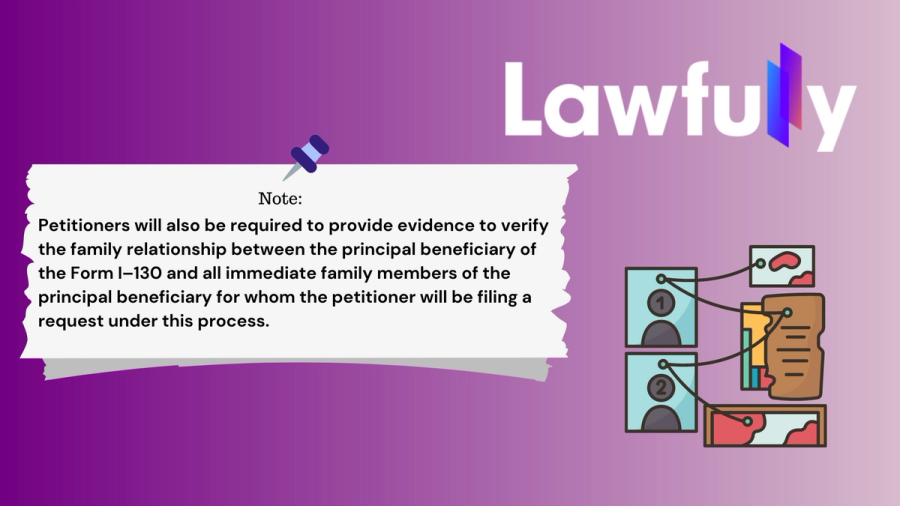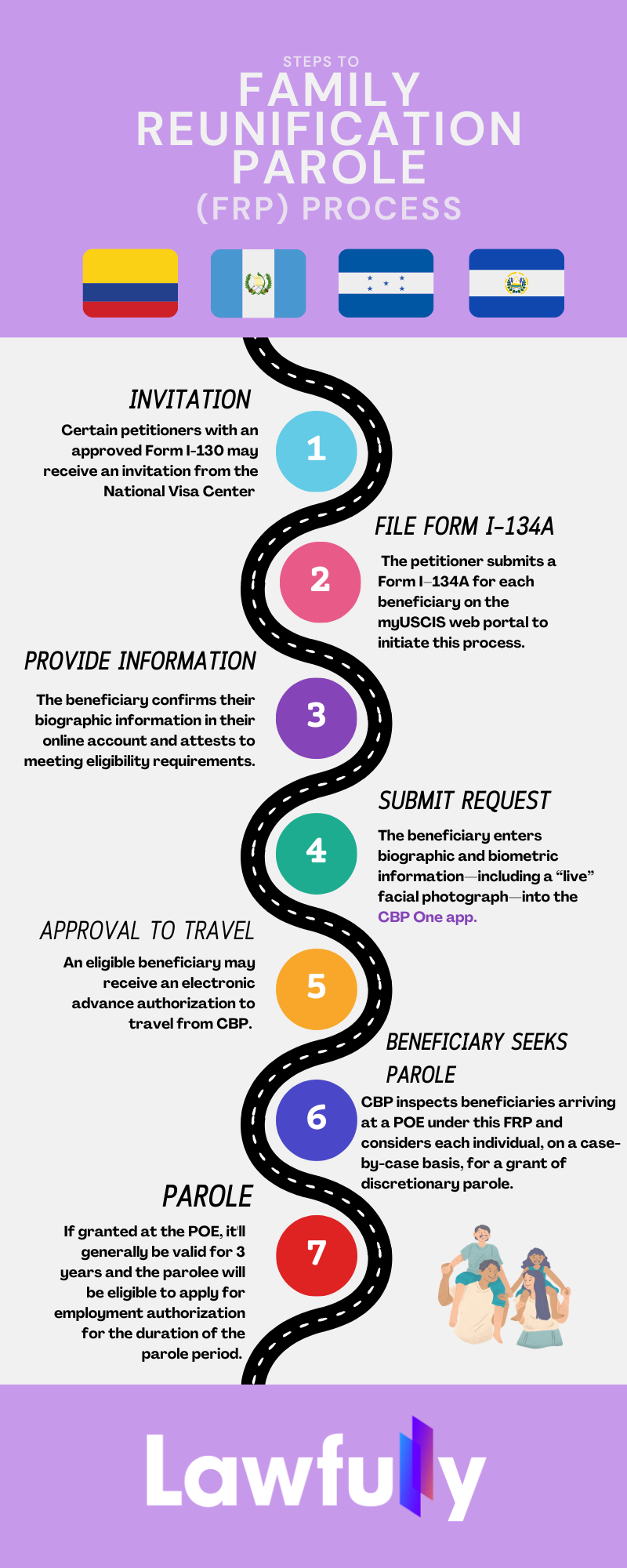Family Reunification Parole (FRP) Process
The Department of Homeland Security (DHS) has announced the creation and implementation of a family reunification parole process (FRP) for nationals from Colombia, Cuba, Ecuador, Guatemala, Haití, Honduras and El Salvador.
What is the Reunification Parole Process for Colombians, Salvadorans, Guatemalans and Hondurans?
It’s a process that is intended to reunite families from these countries whose relatives are U.S. citizens or lawful permanent residents with an approved Form I-130. Specifically, nationals of these countries can be considered for parole on a case-by-case basis for a period of up to three years while they wait to apply to become a lawful permanent resident, rather than remain outside the United States while awaiting the availability of their immigrant visas.
Who is eligible for this process?
Certain petitioners who have an approved Form I–130 filed on behalf of an Ecuadorian, Colombian, Cuban, Haitian, Salvadoran, Honduran or Guatemalan principal beneficiary.
How can they participate in this process?
The NVC will issue invitations to participate in this process to certain petitioners who have a Form I-130 approved.
What information can I find in the invitation?
The invitations will provide information about how the petitioner may file a request with USCIS that initiates this FRP process on behalf of a principal beneficiary of an approved Form I–130, and a separate request for any immediate family members of the principal beneficiary.
What will the review process be like?
The petitioner must pass security and background vetting, including for public safety, national security, human trafficking, and exploitation concerns.

Roadmap
Here’s a small roadmap to how the FRP Process looks like, you can find out more about these steps here.

What does ‘parole’ mean?
According to USCIS, parole:
Parole allows an individual, who may be inadmissible or otherwise ineligible for admission into the United States, to be paroled into the United States for a temporary period. The Immigration and Nationality Act (INA) allows the secretary of homeland security to use their discretion to parole any noncitizen applying for admission into the United States temporarily for urgent humanitarian reasons or significant public benefit.